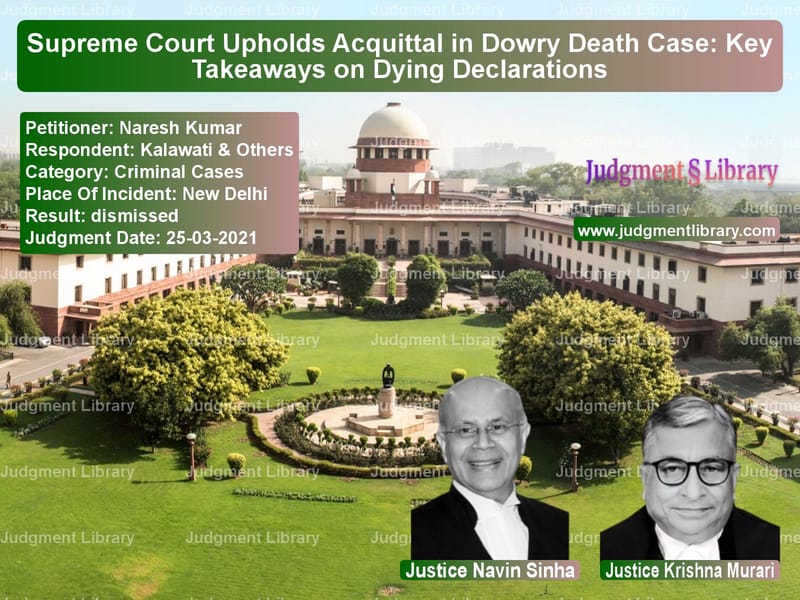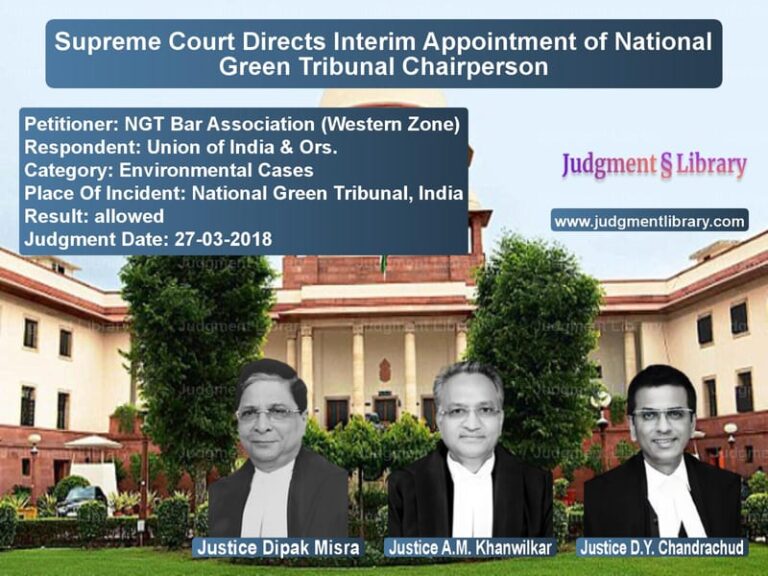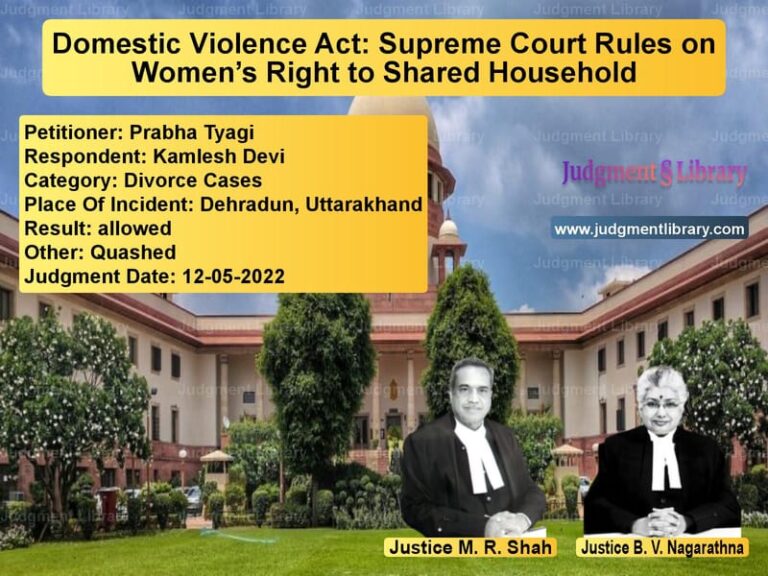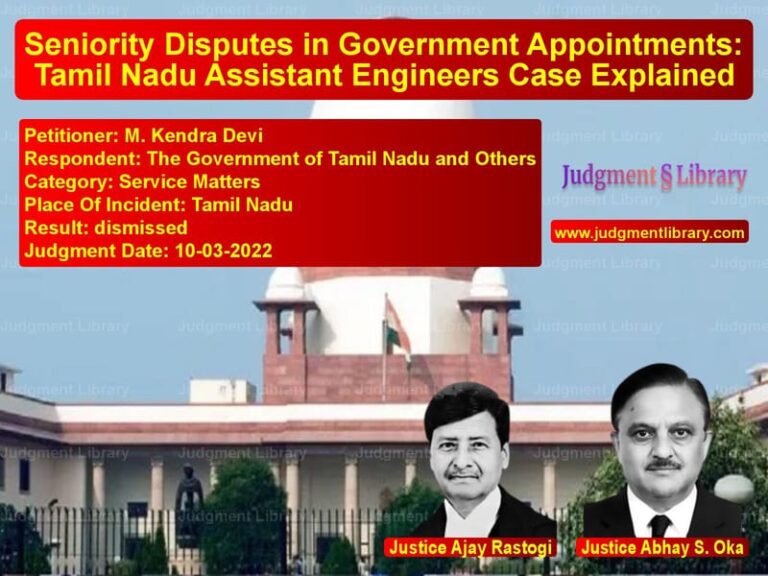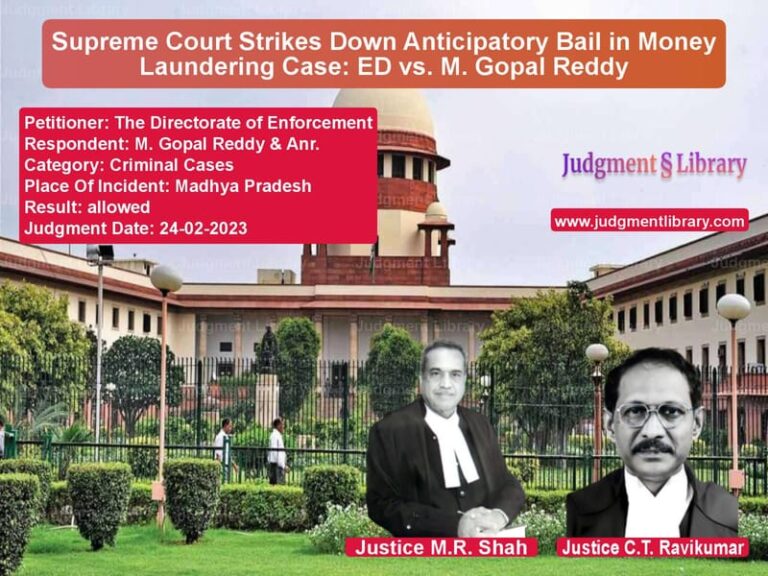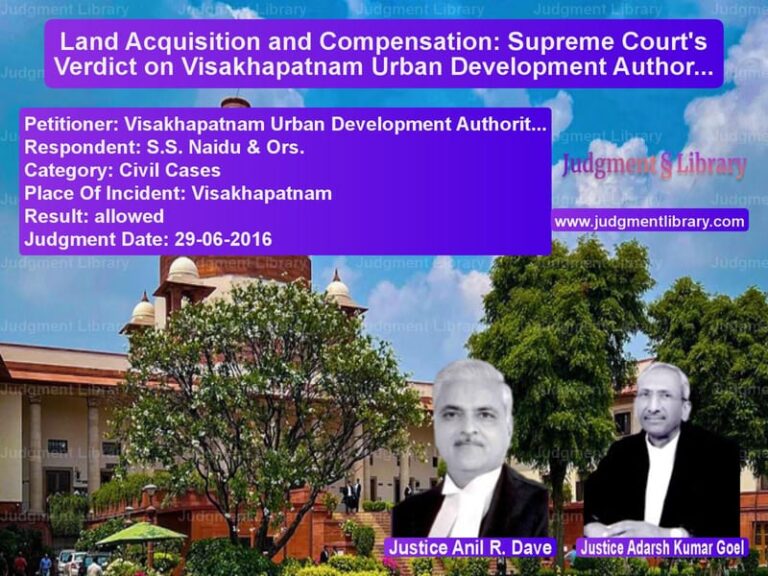Supreme Court Upholds Acquittal in Dowry Death Case: Key Takeaways on Dying Declarations
The Supreme Court of India recently upheld the acquittal of two individuals accused of dowry-related murder in the case of Naresh Kumar vs. Kalawati & Others. This case revolved around the suspicious death of a woman due to severe burn injuries at her matrimonial home. The primary evidence against the accused was the deceased’s dying declaration. The Court’s decision provides critical insights into how dying declarations are evaluated in legal proceedings.
Background of the Case
Naresh Kumar, the deceased’s brother, challenged the acquittal of the accused, who included the deceased’s husband and sister-in-law. The accused were initially charged under Sections 498A and 302/34 of the Indian Penal Code (IPC) for cruelty and murder. The Trial Court and the High Court both acquitted them, citing doubts regarding the credibility of the dying declaration.
The case was based purely on circumstantial evidence, as there were no eyewitnesses. The prosecution primarily relied on the dying declaration recorded by the police, in which the deceased blamed her husband and later, her sister-in-law, for setting her on fire.
Key Legal Issues
- Whether the dying declaration was admissible and reliable enough to convict the accused.
- Whether the prosecution had successfully proven dowry-related harassment leading to the victim’s death.
- Whether the courts could convict based on multiple and inconsistent dying declarations.
Arguments by the Petitioner (Naresh Kumar)
- The deceased suffered 95% burn injuries at her matrimonial home just 17 months after her marriage, which raises suspicion.
- The initial medical report stated that the victim was conscious when she made her dying declaration, which should be considered sufficient proof.
- Witnesses, including the deceased’s mother and sister, testified that the deceased had told them that she was set on fire by her sister-in-law.
- The lower courts wrongly dismissed the evidence of cruelty and dowry-related harassment.
Arguments by the Respondents (Accused)
- The deceased’s dying declarations were inconsistent, initially blaming her husband and later her sister-in-law.
- The doctor who recorded the declaration did not certify the victim’s fitness to make a statement.
- The prosecution failed to prove that there was any dowry demand or prior incidents of harassment.
- The deceased was depressed due to her inability to conceive and suspected an affair between her husband and sister-in-law, which might have driven her to commit suicide.
Supreme Court’s Observations
- The Court emphasized that a dying declaration, to be relied upon, must be consistent and made in a fit state of mind.
- It noted that the deceased gave contradictory statements—initially blaming her husband and later blaming her sister-in-law—which affected its credibility.
- There was no direct evidence of dowry harassment or domestic violence leading up to the incident.
- The medical officer who recorded the declaration did not certify whether the deceased was mentally fit at the time of making her statement.
- The prosecution’s failure to examine the doctor who recorded the statement weakened their case.
The Court stated:
“A dying declaration is admissible evidence, but it must be free from doubt and inspire confidence. If the statement is inconsistent or there is a possibility of fabrication, the benefit of doubt must be given to the accused.”
Supreme Court’s Final Verdict
- The Supreme Court dismissed the appeal and upheld the acquittal of the accused.
- The Court ruled that the dying declaration was unreliable due to inconsistencies and the absence of a medical fitness certificate.
- The accused were given the benefit of the doubt, as the prosecution failed to prove the case beyond reasonable doubt.
Impact of the Judgment
- Reinforcement of Evidentiary Standards: The ruling clarifies that dying declarations must be clear, consistent, and recorded with due medical certification to be considered reliable.
- Protection Against Wrongful Convictions: The judgment ensures that individuals are not convicted based on unverified or contradictory statements.
- Precedent for Future Dowry Death Cases: This ruling will be referenced in cases involving circumstantial evidence and dying declarations, helping courts evaluate such statements critically.
Conclusion
The Supreme Court’s decision in Naresh Kumar vs. Kalawati & Others highlights the importance of ensuring that dying declarations meet legal standards before they are accepted as conclusive evidence. By upholding the acquittal, the Court reaffirmed the principle that suspicion cannot take the place of proof in criminal trials. This judgment will serve as a guiding precedent in cases dealing with circumstantial evidence and the reliability of dying declarations.
Petitioner Name: Naresh Kumar.Respondent Name: Kalawati & Others.Judgment By: Justice Navin Sinha, Justice Krishna Murari.Place Of Incident: New Delhi.Judgment Date: 25-03-2021.
Don’t miss out on the full details! Download the complete judgment in PDF format below and gain valuable insights instantly!
Download Judgment: naresh-kumar-vs-kalawati-&-others-supreme-court-of-india-judgment-dated-25-03-2021.pdf
Directly Download Judgment: Directly download this Judgment
See all petitions in Murder Cases
See all petitions in Custodial Deaths and Police Misconduct
See all petitions in SC/ST Act Case
See all petitions in Suicide Cases
See all petitions in Legal Malpractice
See all petitions in Judgment by Navin Sinha
See all petitions in Judgment by Krishna Murari
See all petitions in dismissed
See all petitions in supreme court of India judgments March 2021
See all petitions in 2021 judgments
See all posts in Criminal Cases Category
See all allowed petitions in Criminal Cases Category
See all Dismissed petitions in Criminal Cases Category
See all partially allowed petitions in Criminal Cases Category

